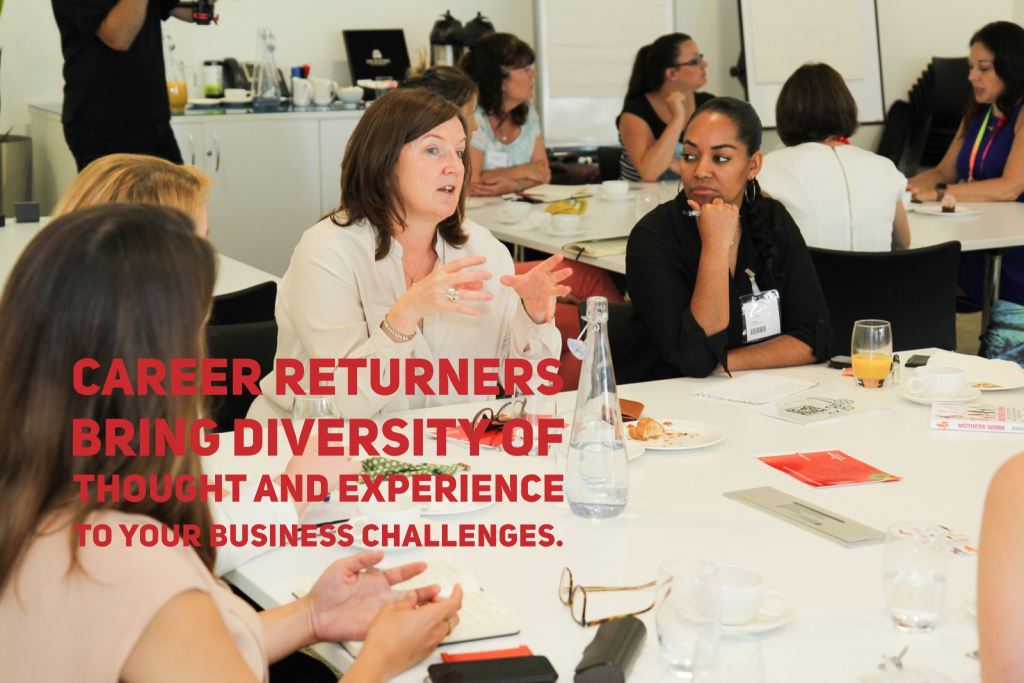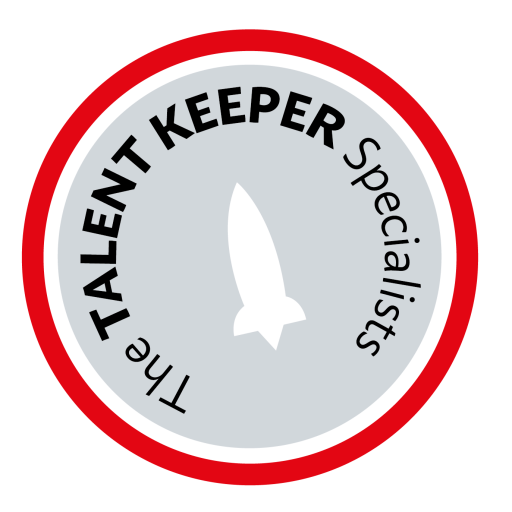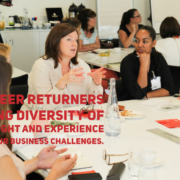What is a returner programme?
A returner programme takes the concept of an internship and makes it relevant to people who have taken a career break and are looking to return to work. Typical programmes enable the individual to transition back into the workplace through a structured and specifically tailored programme. Participants either undertake a piece of relevant project work or step into a potentially available role providing them with the ability to demonstrate their suitability for longer term employment.

Is a returner programme relevant to my organisation?
Returner
If you agree with at least three of the following five statements, a returner programme is likely to be a useful tool for your organisation:
1. Your organisation has a stated goal (publicly or internally) of moving towards gender parity in specific areas or levels of your organisation.
2. There is a shortage of women in your industry.
3. Your CEO and/or executive team is aware of the link between gender diversity and increased financial performance.
4. Your organisation is struggling in one or more areas/levels to recruit and retain great* people.
5. Your internal or external recruitment team is failing to create gender balanced shortlists or you are hiring less women than you would like.
* We all have different definitions of what great is. We mean someone who delivers on agreed objectives and does it in such a way that other employees and clients would miss him or her if they left your business.
Which organisations are returner programmes NOT suitable for?
Returnship
- Organisations who ‘measure’ who’s doing a good job by how much time they spend in the office
- Organisations who are uncomfortable with the concept of flexible working
- Organisations with a CEO who doesn’t know/believe research showing the link between gender diversity and profitability.
Why is it necessary to run a programme for returners?
Returnship
- Most career returners have been applying to normal jobs and they don’t even get invited to an interview – this has resulted in a large talent pool that really wants to get back to work but is unable to do so. In a country with purported skills shortages it is crazy that we overlook this market.
- Most jobs have countless applications and a recruiter or an internal resourcing team will short-list 4 or 5 for the line manager to review. The one with the CV gap is the one most likely to be taken off due to the biases. In 2012 there was a fascinating piece of research done in the US by a business called The Ladders[i]. Utilising scientific eye-tracking equipment they analysed how long the average recruiter looks at a CV, done over ten weeks. The average? Six seconds. And they look at your Current Title & Company and the Dates first. So if the first thing they see for a Returner is dates that highlight a break and no current employer then what hope is there for those six seconds?
- There is still a stigma around flexible working in many organisations. Forward thinking businesses are embracing it, but overall far too many businesses suffer from presenteeism and clock watching. Many women when returning from a career break will require some form of flexibility in their role. Again during the recruitment process we are told that they are often uninvited to interview the minute they mention part-time or flexible working.
[i] http://www.businessinsider.com/heres-what-recruiters-look-at-during-the-6-seconds-they-spend-on-your-resume-2012-4?IR=T
Returnship
What’s the value of a returner scheme?
Returnship
We believe there are five key points of value.
For the organisation:
1. Talent and technical skills are on offer that your business may not have been able to access in your internal pipelines.
2. Candidates who have taken a break from their career bring diversity of experience and thought to your business challenges.
3. Younger women want to see more, older women in their businesses; they want role models and want to see working women at all stages of their career.
For the individual returner:
4. Participants are supported during the transition period through coaching and invaluable conversations with peers on the programme.
5. Delivery of a relevant and valued piece of work breeds self-confidence when seeking further employment. Participants go on to target roles commensurate with their skills and abilities.
Returnship
How long should it be, what should you pay?
Returnship
There is no one size fits all approach to timing and pay. Some schemes last 12 weeks, some 16 weeks and some are 6 months. Pay is usually dependent on what level of returner the organisation is seeking to attract. The best return to work programmes have had dual bandings if applicable to the talent presented. The most important thing is to ensure the returner, if hired after the programme, goes on to a salary that is commensurate with the role they are offered.
Returnship
If you would like to know more
Returnship
The Talent Keeper Specialists have partnered with Inclusivity (www.inclusivity.co.uk) to create a fresh, start-to-finish returner offering we think beats what’s currently on the market. From sourcing, screening and selection, through to induction, coaching and employability skills sessions during the programme.
If you’re not quite there yet and have cultural issues to tackle around flexible working or conscious/unconscious biases for example, let’s have a conversation. We design and deliver solutions to shape inclusive, positive workplaces. Please e-mail hello@talentkeepers.co.uk or call 01727 856169.
Talk to Jessica Chivers jc@talentkeepers.co.uk or call 01727 856169.




Just stumbled across this and just wanted to say how fabulous. Ive had 3 years off to raise my daughter because there just wasn’t the flexibility etc and childcare costs are prohibitive. Im now looking at how to get back into the corporate role having previously been a marketing manager for a software comms company.
keep up the good work